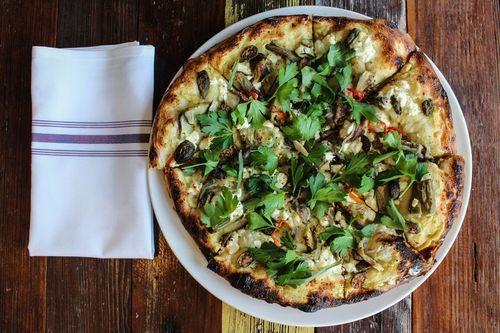Alia Akkam, photo by Andrea Weir
Serious about crafting restaurant-caliber pizza on your
home turf? Then you’ve probably already shunned the packaged shredded
mozz for creamy balls of the fresh stuff. But that’s just the first step
to a killer pie. Ensuring your pizza emerges from the oven with the
vibrant sauce, airy but charred crust, and brilliantly creative toppings
of the latest pizzerias is a lot harder than it looks. Fortunately, we
tapped the pizza experts (aka pizzaioli) from some of the newest pizza
destinations across the country for their expert advice.
Strategy #1: Go Thick, Go Low
At Marta, Danny Meyer’s latest New York project, inside the Martha Washington Hotel, Nick Anderer mans the wood-burning ovens that elicit paper thin, Roman-style pizzas. This technique is even more challenging to master in the civilian kitchen devoid of 600-degree ovens, but the ambitious should certainly try. “If the raw dough is too dry, it burns before getting crispy. Higher hydration allows for more time on the pizza stone without burning, and this extra time results in crispier crust,” he explains. “But the bitch of it is that working with high-hydration dough at home is tricky, usually because of the transfer to the oven.”
Instead, Anderer points out, consider the pan pizza, or thicker, focaccia-like pizza rustica: “You can cook it for a longer time, at a lower temperature—closer to 450 or 500 degrees. It won’t be like pizzeria pizza, but it will be crispy and delicious, albeit a touch thicker and doughier.” Just roll out the dough about twice as thick as usual, then bake in a well-oiled rimmed baking sheet instead of on a pizza peel.

